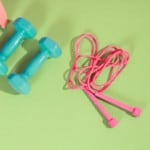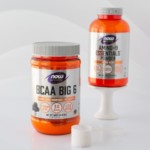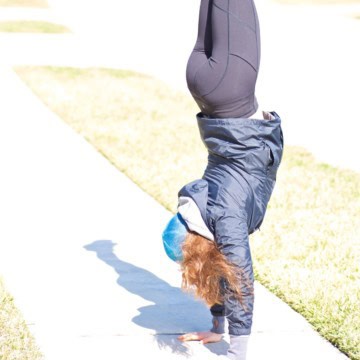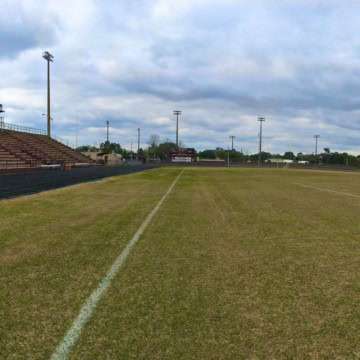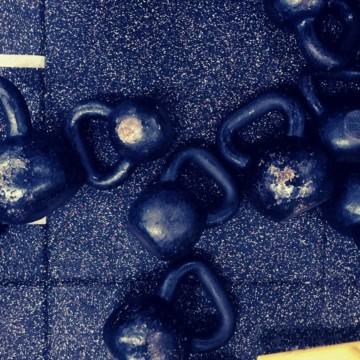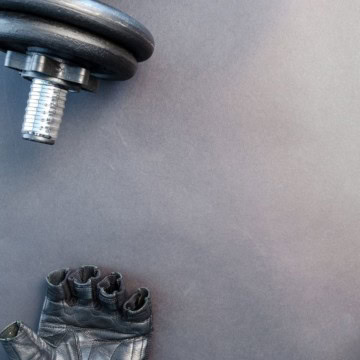
Teen athletes find themselves pushing the limits of their body all year round without proper recovery time. Here's 5 Reasons for More Recovery Days.

For more tips for teen athletes, try this post on Omega-3 Supplements and Protein Powder for Teen Athletes.
Go Hard or Go Home!
Pain is Weakness Leaving the Body.
Sports provides an awesome opportunity for teens to learn hard work, persistence, and tolerance for uncomfortable situations. But with the way youth sports are going these days, athletes might find themselves constantly pushing the limits of their body all year round without proper recovery time.
Rest and recovery days are essential to improve overall fitness (aerobic, strength, and power), performance, mentality, technique, and efficiency. If you do not take a rest every once in a while during intensive training weeks you are more prone to overtraining syndrome. That sounds serious, and it is!
Overtraining syndrome is excessive training, characterized by long-lasting fatigue and worsening of competitive performance with further attempts to improve physical conditions. It may show signs and symptoms such as underperformance, altered moods, loss of appetite, recurrent infection, chronic fatigue, unintended weight loss, loss of menstrual cycle and/or muscle weakness. Overtraining and underperformance may occur from other stressors such as stress, poor nutrition, and illness. Heavy training and poor recovery can cause decreased immune functions, putting the athlete at increased risk for infection and illness. To avoid overtraining it is recommended to take recovery or rest days.(1)
5 Reasons for More Recovery Days
#1 – Prevent Mental Burnout
Stress is an inevitable part of life as a teen athlete. Whether it’s a tough game, passing exams, balancing workload, building new relationships, or meeting school deadlines, stress is always around us. Constantly feeling stressed can lead to burnout, which is a real thing. Athletic burnout happens when you feel physically and psychologically exhausted from the demands of training and competing. It can produce a reduced sense of accomplishment in sports or school and lead to sport devaluation and depreciation. Rest days are crucial to balance stress because it provides an athlete time to take a step back and relax the mind and body. (2)
If your athlete is showing signs of burnout it’s important to assess just how full their schedule is. It may be time to take something off their plate and allow true rest time on weekends or weeknights.
If you are an athlete feeling stressed or burnt out, please talk about it to your friends, family, and coaches. Many schools offer counseling services as well.
#2 – Balance Hormones
Our immune system consists of leukocytes. Leukocytes (or white blood cells) help the body to fight off disease and infection. When we work out, the function of these cells may be decreased by repeated intense prolonged exercise. This can leave our body in an inflamed state which consequently reduces immune system activity. Rest days help to create more leukocytes and regulate the overall immune system. (1)
#3 – Protect the Immune System
Our immune system consists of leukocytes. Leukocytes (or white blood cells) help the body to fight off disease and infection. When we work out, the function of these cells may be decreased by repeated intense prolonged exercise. This can leave our body in an inflamed state which consequently reduces immune system activity. Rest days help to create more leukocytes and regulate the overall immune system. (1)
#4 – Muscle Repair
Workouts put our body is in a muscle break down mode, or a catabolic state. Exercise creates microscopic tears in the muscle fibers. In order to repair and gain new muscle the body needs to be in a resting state, or anabolic state. Rest days encourage muscle healing and recovery, causing muscle building. If your athlete is desiring to build muscle and strength, rest days are imperative to do so. (3)

#5 – Initiates Parasympathetic Nervous System
Rest days help initiate the parasympathetic nervous system. This system activates digestion, slows heart rate, decreases blood pressure, and stimulates other metabolic processes that help us to relax. This system plays a major role in maintaining mental and physical health. If your athlete is constantly training and stressing their body, this system does not trigger near enough. An irritable athlete cannot perform at their best on the field, at school, or in the family. (4)
How Much Recovery Time Does Your Athlete Need?
There is no ‘one size fits all’ when it comes to rest days. Rest time is highly individualized and depends greatly on your training level and exercise prescription. Research has shown that athletes need more rest time when they are starting a new training regimen (like at the beginning of a season). Also, the higher the intensity, the more time needed for muscle recovery. No matter what your workout agenda is, it is always important to listen to your body. If you see signs and symptoms of overtraining (listed above) then you need more recovery time, period. (5,6)
It can be difficult to convince yourself or your athlete that rest days are needed. Many teen athlete are drawn to continue training on the weekends or adding a second workout in a day. However, if your athlete is feeling constantly tired, overly sore, irritable, or mentally drained, more rest time is needed. Start by adding 1-2 complete rest days into their training regime but you may need even more depending on how intense training is.
As a family, you can decide together to take rest days, saying “no” to extra activities that don’t support rest and recovery. Write it into your calendar or agenda and follow through with it.
So what do you do on a rest day? Here are a few ideas to help you out:
What to do on a Recovery Day
- Take a nap, or sleep in if you can. Some shut eye can go a long way and help make up for lost sleep during the week.
- Nutrition is essential to replenish the body after tough workouts. Eat three balanced meals, some snacks, and drink plenty of water.
- Practice stretching, low intensity yoga, or foam rolling to release lactic acid and stretch muscles and tendons.
- RICE – rest, ice, compress, and elevate – any hurting body parts.
- Decrease screen time – instead read a book, daydream (yes, daydream!), journal, go on a walk, and meet up with friends.
- Do something fun! Happiness increases your happy hormones (endorphins) and help to reduce anxiety, boost self esteem, and decrease pain.
Written by Dietetic Intern Sigourney McGovern and Coach Jenna Braddock.
References:
- https://www.ncbi.nlm.nih.gov/pmc/articles/PMC3963240/
- https://www.ncbi.nlm.nih.gov/pmc/articles/PMC5772382/
- https://www.ncbi.nlm.nih.gov/pubmed/12617692
- https://www.ncbi.nlm.nih.gov/pubmedhealth/PMHT0025455/
- https://www.ncbi.nlm.nih.gov/pubmed/20625191
- https://www.nccpt.com/store/products/download.php?id=324







